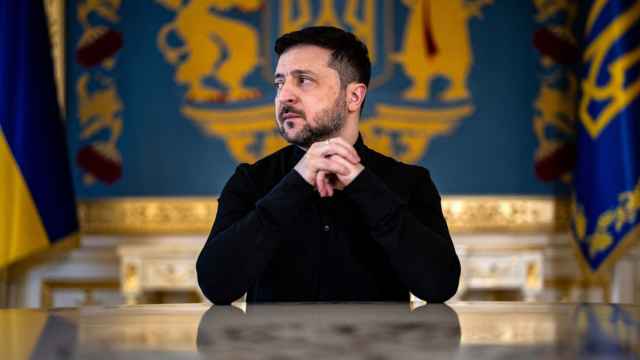The Central Bank is trying to limit lenders depositing money with their foreign counterparts by reclassifying the transactions as high-risk, which would make them more expensive and less attractive, Kommersant reported Friday.
A recent amendment to the instructions for the statutory requirements of banks reclassifies cross-border transactions as high risk, regardless of how reliable the foreign recipient bank is.
The limits apply to transactions that require the involvement of a third party and operations with non-resident banks.
The reclassification focuses on transactions that require the involvement of a third party, but also operations with non-resident banks that lend to offshore companies and are then unable to return the money to the Russian bank when the debtor defaults on repayments.
Banks could have their licenses revoked if they do not comply with the new regulations.
"By creating this rule, the regulator goes from talking with the banks about the transparency of operations and recommendations for correcting them to talking about financial requirements," Central Bank deputy chairman Mikhail Sukhov told Kommersant.
He hopes that more regulation will stop Russian banks from losing large sums of money to foreign banks, as was the case with Vitas, which lost 300 million rubles ($9.3 million) to Meinl Bank in Austria. Petroff Bank also lost $50 million and 600 million rubles to a Swiss bank.
Having more Central Bank representatives in banks "will increase the chance of identifying suspicious transactions with non-resident banks," Sukhov said.
The changes would still allow companies to work with banks abroad if they are prepared to cover the withdrawal of existing assets themselves.
Suspicious transactions are generally easy to identify, said Alexei Terekhov of auditing firm FBK, and the increased role of regulators and their ability to reclassify risk could create conflict with the banks.
Central Bank data on Friday showed it did not add gold to its reserves for the first time in nine months in June, when bullion prices fell by more than 10 percent to their lowest in nearly three years, Reuters reported.
Russia's gold reserves remained unchanged at 32 million troy ounces in June compared with May, the central bank said on its website on Friday. The bank declined to comment on the reason.
The value of the holdings fell to $38.6 billion as of July 1 from $45 billion a month earlier, it added.
The last time the bank did not add gold to its reserves was in September 2012, when they amounted to 30 million troy ounces. It bought gold in every month from October 2012 through May 2013.
Russia has been the biggest gold buyer in the official sector in the past decade. A shift by central banks from major sellers of bullion to net buyers has been a major support to the gold market in recent years.
Gold fell $200 an ounce in less than two weeks last month after the U.S. Federal Reserve signaled it was set to rein in its $85 billion in monthly asset purchases later this year and halt stimulus altogether by mid-2014.
Ultra-loose monetary policy, which kept long-term interest rates at rock bottom and stoked fears of inflation, was an important driver of the rise in gold prices to record highs in 2011.
A Message from The Moscow Times:
Dear readers,
We are facing unprecedented challenges. Russia's Prosecutor General's Office has designated The Moscow Times as an "undesirable" organization, criminalizing our work and putting our staff at risk of prosecution. This follows our earlier unjust labeling as a "foreign agent."
These actions are direct attempts to silence independent journalism in Russia. The authorities claim our work "discredits the decisions of the Russian leadership." We see things differently: we strive to provide accurate, unbiased reporting on Russia.
We, the journalists of The Moscow Times, refuse to be silenced. But to continue our work, we need your help.
Your support, no matter how small, makes a world of difference. If you can, please support us monthly starting from just $2. It's quick to set up, and every contribution makes a significant impact.
By supporting The Moscow Times, you're defending open, independent journalism in the face of repression. Thank you for standing with us.
Remind me later.





